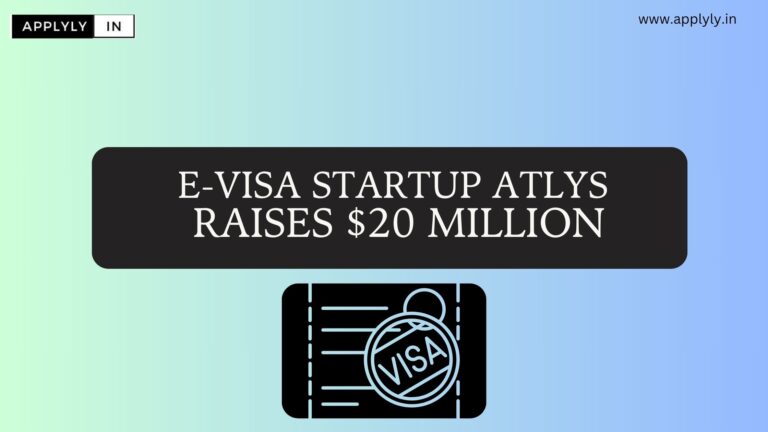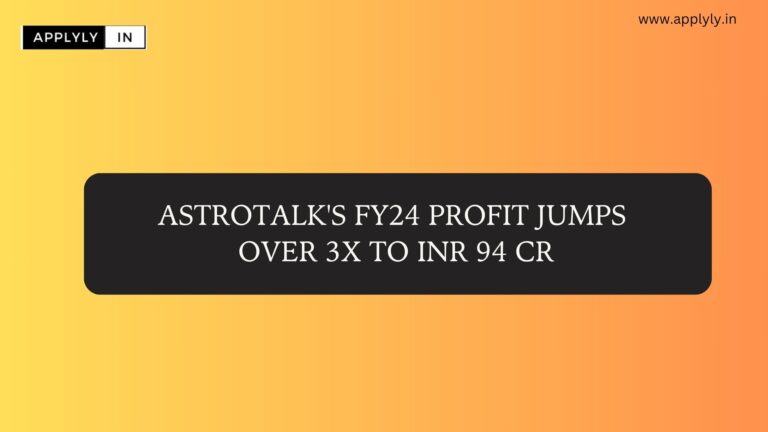Zomato Raises Platform Fee To Rs. 10 Ahead Of Festive Season
INTRODUCTION
The food delivery giant Zomato has made a strategic move by raising its platform fee to Rs. 10. As the festive season approaches, this increase comes at an important time for the company and its users. Let’s dive into what this means for you, why Zomato decided to make this change, and how it impacts the startup ecosystem.
What is the Platform Fee? 🤔
The platform fee is a small charge that a startup applies to each order placed through its app. This fee covers operational costs, such as technology upgrades, delivery infrastructure, and customer support. Earlier, the platform fee varied by region and order value, but now it has been standardized at Rs. 10.
While Rs. 10 may not seem like much, it can add up, especially for frequent users. For startups like Zomato, every rupee counts toward improving their services and maintaining a competitive edge.
Why Has Zomato Raised Its Platform Fee? 📈
Zomato raises platform fee to Rs. 10 ahead of festive season for multiple reasons:
- Increased demand during festivals: The festive season in India is one of the busiest times for food delivery platforms. By raising the platform fee, Zomato aims to cover the extra costs associated with higher demand, such as increased delivery staff and quicker deliveries.
- Rising operational costs: Food delivery startups face rising expenses, from fuel prices to maintaining a reliable delivery fleet. This fee helps offset those costs.
- Tech and service upgrades: Zomato is constantly upgrading its app, adding new features, and improving the overall user experience. The platform fee helps support these tech-driven improvements.
Impact on Users : Zomato Raises Platform Fee💡
Although Zomato raises platform fee to Rs. 10 ahead of festive season, the increase is relatively small. Most users may not even notice the extra charge, but if you order food regularly, the extra Rs. 10 could feel like an unnecessary burden. For others, it’s a price worth paying for quick, reliable deliveries during busy festive times.
However, the move may not sit well with some users who are already conscious of rising food prices. The decision could lead to a small dip in order frequency, especially among price-sensitive customers. But for startups like Zomato, the move ensures long-term sustainability.
How can this Affect the Food Delivery Ecosystem? 🛵
Zomato’s decision could set a trend for other food delivery startups like Swiggy and Dunzo, who may follow suit. With rising costs across the board, food delivery platforms may need to adjust their fees to maintain profitability. For the overall ecosystem, this fee increase could lead to a ripple effect, with customers gradually accepting platform fees as part of the service.
Moreover, the raised fee could also open up opportunities for local food delivery startups to offer cheaper alternatives, especially during the festive season when competition is fierce.
How Zomato Stays Ahead in the Competitive Startup World 🚀
Zomato’s fee hike is a strategic decision to ensure it stays ahead in India’s competitive food delivery market. With several other startups vying for a piece of the pie, Zomato needs to maintain its leadership through continuous innovation and better services. This Rs. 10 fee will likely fund its technology initiatives and keep customers satisfied with faster deliveries.
Interestingly, Zomato has also been focusing on expanding its portfolio beyond just food delivery. With this extra revenue from the platform fee, Zomato may continue to explore new business models and services.
What This Means for Delivery Partners 🚴♂️
Zomato’s delivery partners are a crucial part of the equation. By raising the platform fee, the company may be able to offer better incentives to its delivery personnel during the festive rush. More orders mean more earnings for delivery partners, but it also means more pressure to meet delivery times and customer expectations.
Some delivery personnel may benefit from the surge in demand, while others might face challenges due to the additional workload. As food delivery startups grow, striking a balance between customer satisfaction and delivery partner well-being becomes critical.
The Future of Platform Fees in India 🛵
As Zomato raises platform fee to Rs. 10 ahead of festive season, it’s clear that this is a trend we may see more often. Indian startups are evolving quickly, and as they scale, platform fees might become a standard feature of food delivery services. The challenge for companies like Zomato will be to keep the fee low enough not to deter customers, while still covering operational costs.
We may also see innovation in pricing models, such as dynamic fees based on demand, time of day, or order value. This will allow startups to remain agile and responsive to market conditions while keeping their user base engaged.
Conclusion: Zomato Raises Platform Fee 🎉
In conclusion, Zomato raises platform fee to Rs. 10 ahead of festive season as part of its broader strategy to handle increased demand, cover rising operational costs, and invest in technology upgrades. While the fee might seem small, it plays a big role in ensuring Zomato stays competitive in the food delivery market.
For customers, this means paying a little more for the convenience of fast, reliable service during one of the busiest times of the year. For the startup ecosystem, Zomato’s move could lead to a shift in how other companies structure their pricing models.
Whether you’re a fan of Zomato or just curious about the dynamics of food delivery startups, this fee hike is an interesting development to watch. So, the next time you order your favorite biryani or pizza, remember that Rs. 10 could be fueling the future of food delivery in India!
Sources:
- Economic Times – Zomato Raises Platform Fee to Rs. 10
- Business Standard – zomato’s Strategic Shift Ahead of the Festive Season
- Office Chai







2 Comments